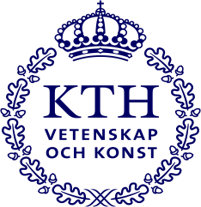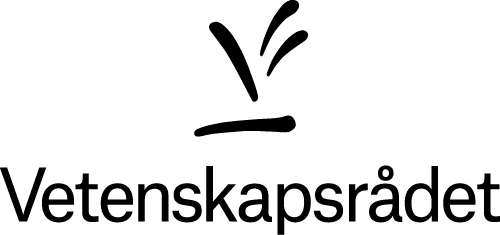Workshop: Arts of Scholaring on a Damaged Planet
"A step forward towards building the academy we want in the Anthropocene". The workshop is organised by Iván González Iglesias, a guest at Center for Anthropocene History at KTH this Autumn.
Time: Tue 2024-11-12 16.00 - 18.30
Location: Solidaritetshuset, Tegelviksgatan 40, Stockholm
Language: English
Participating: Janna Holmstedt, Meike Schalk, Henrik Ernstson, Paola Torres Núñez del Prado,Iván González Iglesias
DATE: November 12, from 16:00 to 18:30 (doors opening at 15:40)
VENUE: Solidaritetshuset, Tegelviksgatan 40, Stockholm
Emerging from a history of extractivism and pollution that has already been world-ending for millions of humans and more-than-human species, the current epoch – the “Anthropocene”– in which living conditions are being unequally ruined at a planetary scale by the impacts of the ongoing power systems of domination, calls for making deep transformations. In this workshop we ask to what extent can we address this responsibility from the university, from "academia"?

We are facing the limitations of the “modern world” which led us here by a systematic and intersectional division between the dominant “Humankind” and the instrumental “Nature”. The same worlding which keeps erasing its violent and dispossessive historical trajectory, as well as struggling to maintain its hegemony through neoliberal accelerationist reactions and postcolonial appropriations among alternative responses. Thus, our understanding and performance of “humanity” and the “world” is being reformulated from multiple positions, both from the Global Norths and from the Global Souths; and it is reflected in every territory and aspect of social life. Academia is one of those urgent sites where we should address the mechanisms and effects of such a traditionally neoliberal, upper-class, male, cisheteronomative, White, anthropocentric institution and fight to enact other commoning worlds more adequate with the conditions of the (remaining) web of Life.
There are many ways in which the academia we want in the Anthropocene is being walked: decolonization and indigenization, transdisciplinary and participatory research methods, transformative workshops, alternative pedagogies, collective actions, transgressive journals… In such a way, we propose this workshop to “stay with the problem” of discussing and imagining the horizons we should aim for and how to embody practically those routes into our situated circumstances. Drawing on the volume edited by Anna Tsing, Nils Bubandt, Elaine Gan and Heather Swanson (Arts of Living on a Damaged Planet, 2017), which digs in the histories of multispecies livability within the traces of extinction, this workshop is named “Arts of Scholaring on a Damaged Planet” to evoke those fruitful resistances that can –and effectively they do– outbreak even in our colonizing Global North academia.
REGISTRATION: Please make sure to register here if you would like to participate. Please, get registered by Friday 8 of November so we can book catering for the event. After that date you will still be able to get registered, though you will not have the possibility to have the provided food.
THE WORKSHOP:
16:00 to 17:10 During the first half of the workshop we will have a live panel discussion among several guests that will be opened to the audience's participation
17:10 to 17:30 Mingle time and coffee break with snacks (including a vegetarian or vegan wrap for those registered)
17:30 to 18:30 During the second half, since the idea of every workshop is to end up producing a material outcome that helps us reflect during its creation process, we will get involved in a small-group co-created short-tale. This will land all the theoretical discussions into concrete narratives that will help us walk these other possible academias
PANELISTS:
Note: Lina Persson gave her place as a panelist to Paola Torres, and Lina will still join the discussions from the audience.
- Meike Schalk is an architect and Associate Professor in Urban Design and Urban Theory at KTH School of Architecture in Stockholm, Sweden. Her current research is concerned with the economical, physical, and social transformations of welfare housing in Sweden and Denmark; young people’s experience of the segregated city; environmental learning; and "community resilience" for ecological transition. She is a co-initiator of the research group and non-profit association aktionarkiv.org
-
Henrik Ernstson is Professor and Docent in Political Ecology at KTH. His research focuses on the political implications of environmental, urban, and infrastructural change with a view to understand ways of knowing, injustices, and emancipatory possibilities and has contributed to postcolonial urban studies, critical environmental studies and developed a film-based research practice. He has co-edited books like “Urban Political Ecology in the Anthropo-Obscene” (2019, with E. Swyngedouw) alongside films like “The Lindeka: How A City Ate a Book” (SVA Film Festival in Toronto, 2023, with J. von Heland)
- Paola Torres Núñez del Prado (SE/PE) challenges dominant cultural narratives in both art and tech by delving into different cultural traditions and practices, aiming to go beyond the anthropocentric origin of today's technology. From such a novel, post-disciplinary framework, she develops interactive, textile-based devices that are both works of art and technical objects originating from a worldview that does not place humans at the center, but that assumes humanity as part of a complex and interconnected environment. As a doctoral researcher, she leads the Critical AI Working Group (KAIA) at Stockholm University of the Arts.
- Janna Holmstedt is an artist and researcher with a PhD in Fine Arts from Umeå University/Lund University, working in a feminist and environmental humanities vein of critical-creative inquiry. She investigates listening as a situated practice, the cultivation of care and environmental attention, and composition in the expanded field of genre-disobedient art practices. Since 2018, she has been part of the research group The Posthumanities Hub (Linköping University and KTH) and in 2021 moved from the Department for Historical Studies of Technology, Science and the Environment at KTH, to Statens Historiska Museer/National historical museums, where she leads the research project Humus economicus: on soil blindness and the value of “dirt” in urbanized landscapes . Publications include Listening With, or the Impossibility of Inhabiting Another’s Ears(with Louise McKenzie, in press) and Follow the Blind, Mimic the Wind and Listen to the Tangle (2021).
OUTCOMES: We will publish the final short-tales on this website and will share them with Solidaritetshuset. Furthermore, during the workshop it will be available an open space where to discuss between all the participants what further work and follow-up could be done with these materials.
LOCATION: The event will be held at Solidaritetshuset, Tegelviksgatan 40, Stockholm. We chose to locate this initiative in Solidaritetshuset because it concentrates the history of multicultural and popular struggles within the diverse Stockholm's peoples, and that way we can move the academia beyond its institutional boundaries and enrich our knowledge and practices together with their knowledge and practices.

LIST Of SOME KEY REFERENCES (WILL BE UPDATING):
1) TEXTS:
Tsing, A. L., Bubandt, N., Gan, E., & Swanson, H. A. (Eds.). (2017). Arts of living on a damaged planet: Ghosts and monsters of the Anthropocene. University of Minnesota Press.
Danowski, D. & De Castro, E. V. (2017 [2014]): The ends of the world, Cambridge: Polity Press => The authors explore the mythical construction of the “end of the world” from different perspectives –Global North cultural products; scholars like Chakrabarty, Anders, Latour and Stengers; and Amerindian cosmologies– that emerges together with the empirical demonstration of the Anthropocene’s planetary destruction rates.
Todd, Z. (2015). Indigenizing the anthropocene. Art in the Anthropocene: Encounters among aesthetics, politics, environments and epistemologies, 241-54 => The author explores several Indigenous scholar’s works that aim the decolonization of academia.
Berger, E., Keski-Korsu, M., Radomska, M. & Thastum, L. (eds.) (2023). State Of The Art - Elements for Critical Thinking and Doing, Bioart Society, available here => A publication made for State of The Art Network (SOTAN) started in 2018 as a network for multidisciplinary collaboration facing the Anthropocene among Nordic and Baltic art organizations and professionals.
2) INITIATIVES:
van Beek, L. (2024): Reimagining the University in the Climate Crisis, a catalogue of transformative university practices in Northern Europe, Utrecht University, available here => a collection of inspiring examples published in October 2024 as part of the project University in a Changing Climate .
Anthropocene Commons (n.d.), available here => a network of researchers, educators, activists, artists and scientists. By commoning skills, knowledge, and resources, the community imagines and explores practices of transformative pedagogies and collective action. This initiative attempts to continue the Anthropocene Curriculum as it happened at the Haus der Kulturen der Welt / HKW in Berlin, 2013-2022.
3) ARTWORKS:
Holmstedt, J., M. Lobell, M. & Fauré, E. (2023) “The Plantationocene Monument: A Traveller’s Guide to the Yearly Multispecies Heritage and Reconnection Ceremony at the Gypsum Island, Sweden, by Elinna Fabelholm, September, 2049”. In Mattingly, M. & Watts, P. (Eds.): The New Geological Epoch. Santa Fe: ecoartspace, available here => this piece of eco fiction stems from field visits to an existing, artificial island outside the city of Landskrona in Sweden, called Gipsön – the Gypsum Island – and the artistic act of declaring the island a Plantationocene monument. It was co-created with Dr. Eléonore Fauré, a researcher exploring just and sustainable futures as part of the Climaginaries network. The exhibition and publication The New Geological Epoch gather artworks that delve into intricate power dynamics that lock many people into participating in harmful systems, as well as capacities for action that help envision larger alternatives.
Von Heland, J. & Ernstson, H. (2018): One Table Two Elephants (84 minutes, cinematic ethnography, film, Color, HD, Dolby 5:1). World Premiere In Competition at CPH:DOX March 20, 2018. The Situated Ecologies Platform (CC-BY-NC): Stockholm. Stable URL, available here => a film about race, nature, and ways of knowing in the postcolonial city. It critically examines the social, cultural, and political dimensions of how resources are managed in Cape Town, South Africa. The film weaves together several stories surrounding the mountain that, in Khoi, the non-Bantu indigenous group and language of southwestern Africa, is called “where the clouds gather,” officially known as Table Mountain. The film follows black hip hop break dancers who try to bring their own cultural roots into modern dancing techniques and how conservation efforts are being pursued by the residents of the city.

